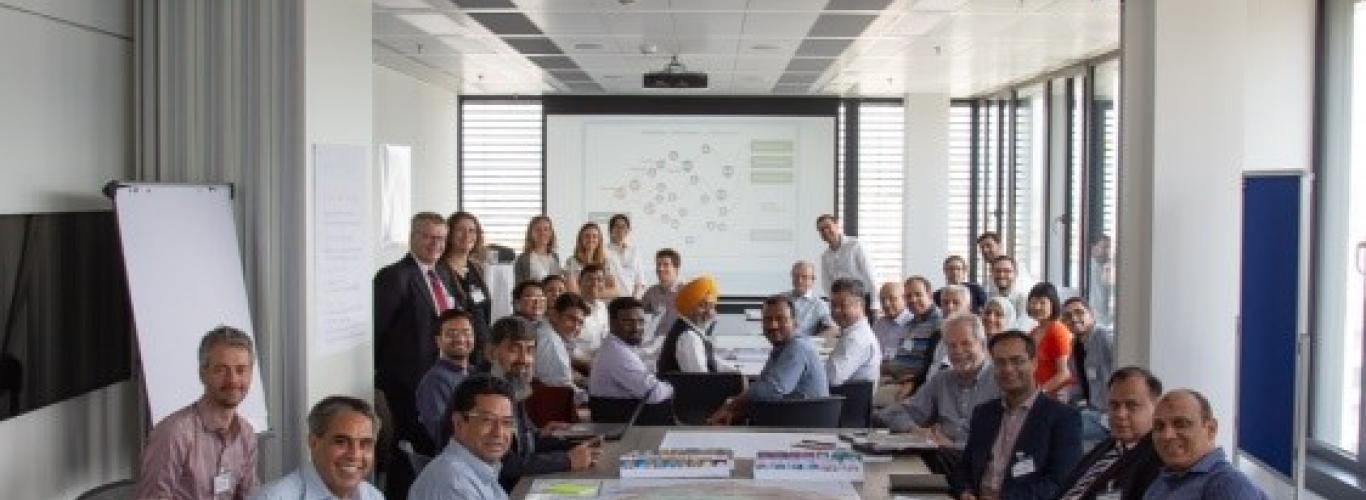LUMS Center for Water Informatics & Technology participated in knowledge sharing and stakeholder engagement in the Indus Basin workshop, Austria
LUMS Centre for Water Informatics and Technology (WIT) actively became part of the Indus Basin workshop held in two parts on May 29-30, 2018 and May 31-June 2, 2018 at the International Institute for Applied Systems Analysis (IIASA) Austria to discuss water, energy and land nexus scenarios for Indus Basin and pinpoint challenges and coordinate future endeavors with stakeholders from riparian countries organised in the context of the Integrated Solutions for Water, Energy, and Land (ISWEL) project, led by the collaboration between the International Institute for Applied Systems Analysis (IIASA), the Global Environment Facility (GEF), and the United Nations Industrial Development Organization (UNIDO).
This meeting succeeded in bringing together on one platform almost 30 stakeholders displaying diverse researches, discussing numerous funding governmental organisations, participation of the NGO’s and getting involved in combined proliferation and transboundary collaboration to fulfil the main aim of the workshop.
In this workshop, Dr. Abubakr Muhammad, Director of Centre for Water Informatics and Technology (WIT), Dr. James Wescoat (WIT Advisory Group), addressed and identified the existing challenges and prospective future possibilities for the Indus River Basin. They also represented the whole Indus region as a common society. Dr. Asif Khan faculty member in WIT and Dr. Afreen Siddiqi (WIT Advisory Group) represented the Indus Basin as an Economical and Environmental problem respectively.
The second round of the meeting from May 31 to June 2, 2018 pondered on Third Indus Basin knowledge Forum, Managing Systems under Stress and Science for the Solutions in the Indus Basin. This forum brought over 100 researchers and policy masters from four basin countries including Pakistan, India, China and Afghanistan together to aid each other by exchanging bulk knowledge and jointly making attempts to co-develop and cooperate for sustainable resource management and policy-making.





